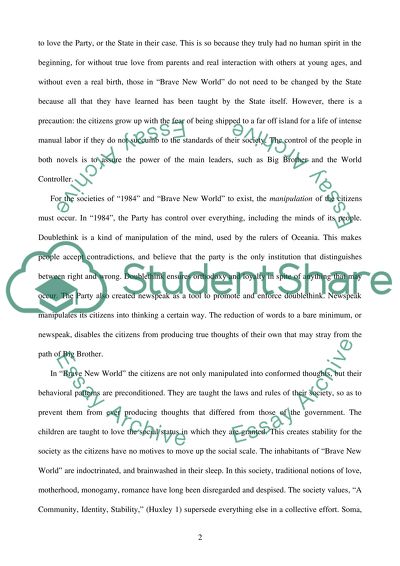Cite this document
(“1984 vs. Brave New World Essay Example | Topics and Well Written Essays - 1500 words”, n.d.)
Retrieved from https://studentshare.org/literature/1516272-1984-vs-brave-new-world
Retrieved from https://studentshare.org/literature/1516272-1984-vs-brave-new-world
(1984 Vs. Brave New World Essay Example | Topics and Well Written Essays - 1500 Words)
https://studentshare.org/literature/1516272-1984-vs-brave-new-world.
https://studentshare.org/literature/1516272-1984-vs-brave-new-world.
“1984 Vs. Brave New World Essay Example | Topics and Well Written Essays - 1500 Words”, n.d. https://studentshare.org/literature/1516272-1984-vs-brave-new-world.


